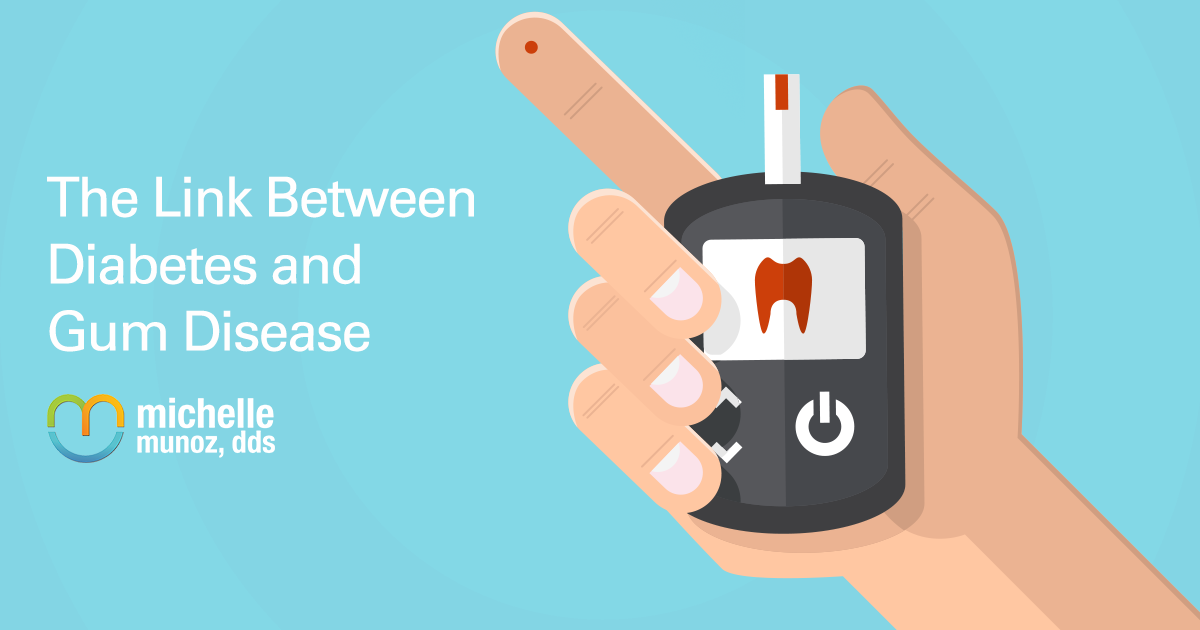Chances are you or someone you know has diabetes. This disease can seriously affect oral health. People diagnosed with diabetes are at risk of several oral health problems, and there is a link between diabetes and gum disease. Do you know what to look for?
People who have diabetes must keep their blood sugar levels under control. Some signs of diabetes can begin in the mouth. Diabetes increases the risk of infection and slows down the healing process. By knowing what signs to look for orally, you can get an early diagnosis and treatment. Here are common oral health problems people with diabetes experience.
- Gum disease
- Cavities
- Oral Candida (yeast infection)
- Lichen planus (an inflammatory, autoimmune skin condition)
- Delayed healing after dental procedures
- Oral ulcers
- Mouth dryness and burning sensation
- Changes in the sense of taste
The Link Between Diabetes and Gum Disease
High blood sugar levels can damage blood vessels and reduce the flow of nutrients and oxygen reaching the gums, which contributes to a higher risk of gum disease. Uncontrolled blood sugar levels may raise glucose levels in the saliva, creating more bacteria. The excess bacteria increase the risk of gum disease and tooth decay.
The bacteria that cause gum disease can get into the bloodstream. The resulting inflammation from the bacteria can raise blood sugar levels, which may lead to the development of diabetes. So, diabetes can cause gum disease, and gum disease may also lead to diabetes.
Preventing Complications
Fortunately, there are steps you can take to prevent complications. Always take your diabetes medications as prescribed, and check your blood sugar levels consistently. There are certain foods diabetics should avoid or consume in moderation.
Follow the dietary guidelines recommended by the ADA (American Diabetes Association). Exercise several times a week and see your physician as scheduled. If you’re a smoker, talk to your doctor about methods to stop.
Also, keep us informed of any abnormal changes to blood sugar levels before receiving treatment. Maintain good oral hygiene by brushing twice a day and flossing once daily. Schedule regular exams and cleanings. How long has it been since your last visit? Contact my office to schedule an appointment.
Best,
Dr. Munoz









